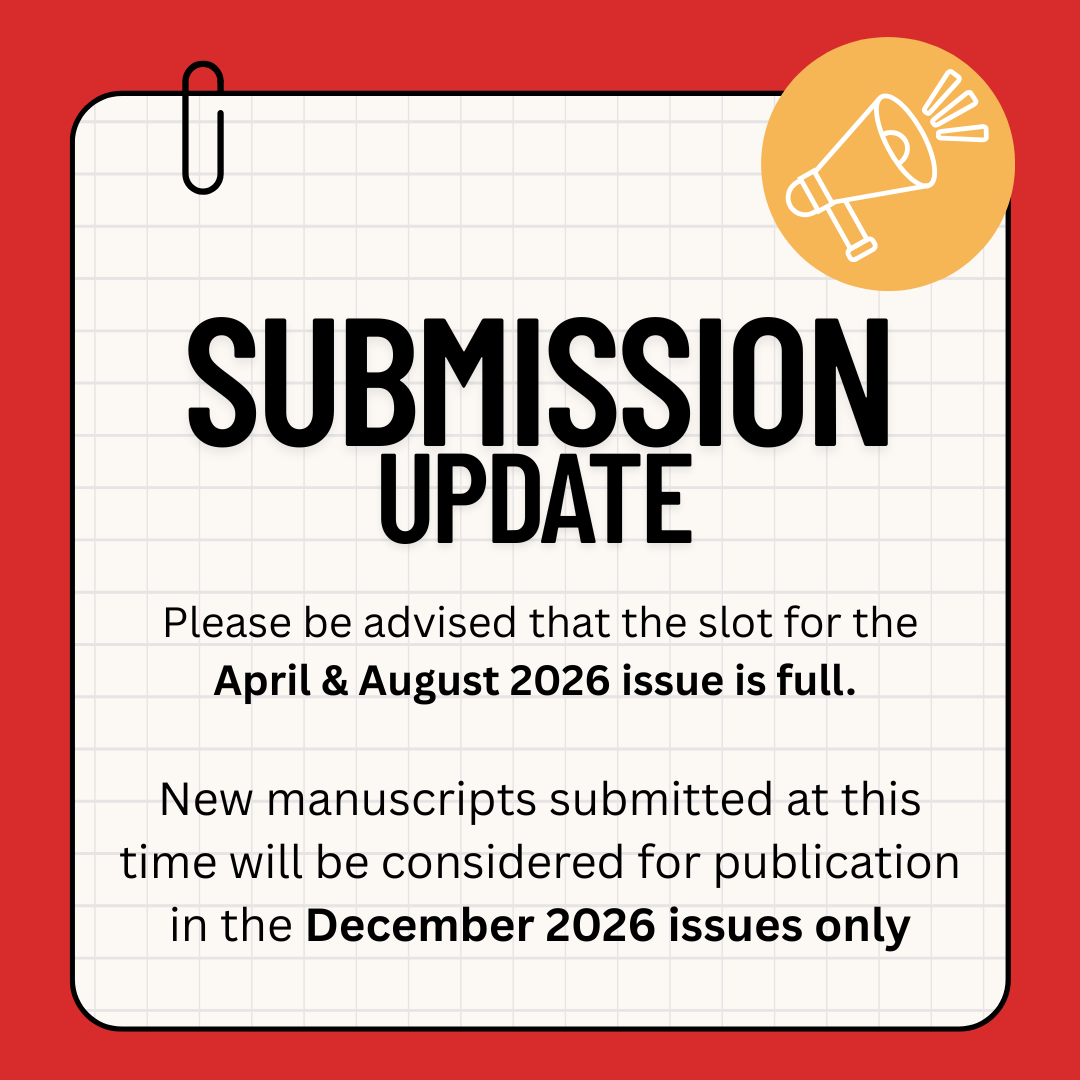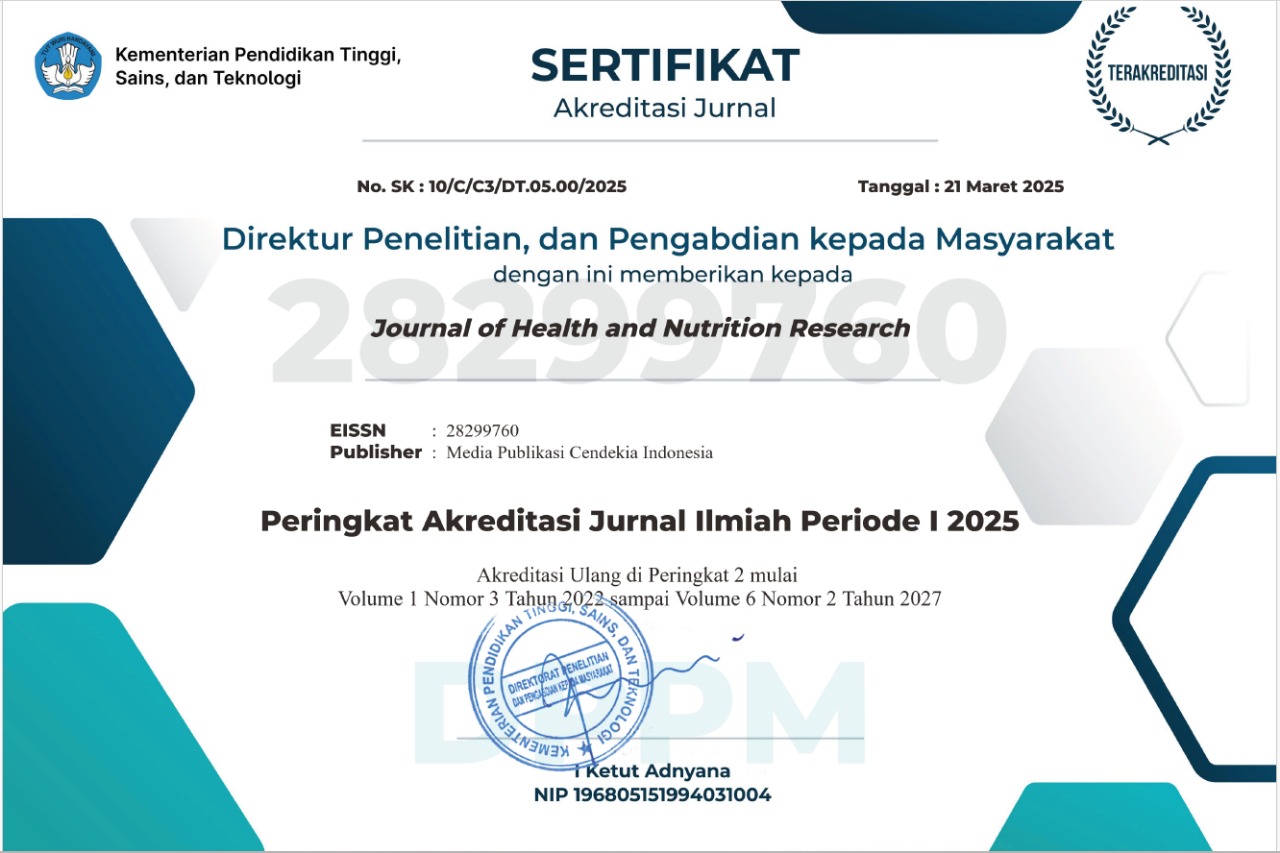The Effect of Peer Teaching Education on Diabetes Self-Care in Patients with Gestational Diabetes: A Quasi-Experimental Study
Keywords:
Gestational Diabetes, Peer Teaching, Self CareAbstract
Gestational diabetes mellitus (GDM) is a global health concern requiring effective self-care, yet barriers such as limited social support and education persist. Peer teaching has emerged as a potential strategy to enhance self-care in GDM patients, though evidence of its effectiveness remains scarce. This quasi-experimental study aimed to evaluate the impact of peer teaching on diabetes self-care behaviors among GDM patients. The study involved 80 pregnant women with GDM, divided into an intervention group (receiving peer teaching) and a control group (receiving standard care). The intervention consisted of weekly 90-minute peer-led sessions over four weeks, focusing on practical self-care strategies. Self-care behaviors were assessed using the Diabetes Self-Management Instrument (DSMI) at baseline and post-intervention. Results revealed significant improvements in all DSMI subscales (self-integration, self-regulation, interaction with healthcare providers, self-monitoring, and adherence to therapy) in the intervention group (p < 0.001), with no comparable changes observed in the control group. The findings demonstrate that peer teaching effectively enhances self-care practices in GDM patients, particularly in glucose monitoring and treatment adherence. These results support integrating peer-led education into routine antenatal care for GDM, especially in resource-limited settings. Future research should explore long-term outcomes and scalability to strengthen implementation strategies
Downloads
References
Wang H, Li N, Chivese T, Werfalli M, Sun H, Yuen L, et al. IDF Diabetes Atlas: Estimation of Global and Regional Gestational Diabetes Mellitus Prevalence for 2021 by International Association of Diabetes in Pregnancy Study Group's Criteria. Diabetes Res Clin Pract. 2022;183:109050.
Sweeting A, Wong J, Murphy HR, Ross GP. A Clinical Update on Gestational Diabetes Mellitus. Endocr Rev. 2022;43(5):763-93.
Haron Z, Sutan R, Zakaria R, Abdullah Mahdy Z. Self-care educational guide for mothers with gestational diabetes mellitus: A systematic review on identifying self-care domains, approaches, and their effectiveness. Belitung Nurs J. 2023;9(1):6-16.
Dang NT, Le HM, Nguyen A, Glöde PC, Vinter CA, Nielsen J, et al. Self-care interventions among women with gestational diabetes mellitus in low and middle-income countries: a scoping review. Syst Rev. 2025;14(1):50.
Safiee L, Rough DJ, Whitford H. Barriers to and Facilitators of Using eHealth to Support Gestational Diabetes Mellitus Self-management: Systematic Literature Review of Perceptions of Health Care Professionals and Women With Gestational Diabetes Mellitus. Journal of medical Internet research. 2022;24(10):e39689.
Yari A, Hassani L, Ziapour A, Toghroli R, Mohammadkhah F, Yazdi F. Prediction of self-care behaviors among diabetic patients based on social cognitive theory. Journal of public health research. 2023;12(1).
Allen NA, Litchman ML, Greenwood DA, Ng A, Sanchez-Birkhead A. Hispanic Diabetes Peer Facilitator Training Needs and Connections to Hispanics With Type 2 Diabetes. Hispanic health care international : the official journal of the National Association of Hispanic Nurses. 2023;21(4):221-7.
Azmiardi A, Murti B, Febrinasari RP, Tamtomo DG. The effect of peer support in diabetes self-management education on glycemic control in patients with type 2 diabetes: a systematic review and meta-analysis. Epidemiol Health. 2021;43:e2021090.
Moradi F, Ghadiri-Anari A, Enjezab B. COVID-19 and self-care strategies for women with gestational diabetes mellitus. Diabetes & metabolic syndrome. 2020;14(5):1535-9.
Akbar MA, Sahar J, Rekawati E, Sartika RAD. Challenges and barriers to noncommunicable disease management at community health centers in South Sumatera Province, Indonesia: A qualitative study. Nursing Practice Today. 2025;12(2):190-201.
Ye W, Luo C, Huang J, Li C, Liu Z, Liu F. Gestational diabetes mellitus and adverse pregnancy outcomes: systematic review and meta-analysis. BMJ (Clinical research ed). 2022;377:e067946.
Ingstrup MS, Wozniak LA, Mathe N, Butalia S, Davenport MH, Johnson JA, et al. Women's experience with peer counselling and social support during a lifestyle intervention among women with a previous gestational diabetes pregnancy. Health psychology and behavioral medicine. 2019;7(1):147-59.
Akbar MA, Sahar J, Rekawati E, Sartika RAD, Gupta P. The Effect of Community Based Intervention on People with Type 2 Diabetes Mellitus: Systematic Review. Public Health of Indonesia. 2025;11(S1):39-51.
Lamadah SM, Ibrahim HA, Elgzar WT, El-Sayed HA, Sayed SH, El-Houfey A. Gestational Diabetes Self-Care Behavior: An Empowerment Educational Intervention Based on BASNEF Model. Iran J Nurs Midwifery Res. 2022;27(6):538-46.
Ghasemi F, Vakilian K, Khalajinia Z. Comparing the effect of individual counseling with counseling on social application on self-care and quality of life of women with gestational diabetes. Primary Care Diabetes. 2021;15(5):842-7.
Seuring T, Marthoenis, Rhode S, Rogge L, Rau H, Besançon S, et al. Using peer education to improve diabetes management and outcomes in a low-income setting: a randomized controlled trial. Trials. 2019;20:1-9.
Otanga H, Semujju B, Mwaniki L, Aungo J. Peer support and social networking interventions in diabetes self-management in Kenya and Uganda: A scoping review. PLoS One. 2022;17(9):e0273722.
Salis S, Verma S, Kohli H, Mohan V. Type 1 Diabetes Peer Support Groups: Bridging the Gap Between Healthcare Professionals and People with Type 1 Diabetes. Journal of Diabetology. 2022;13(1).
Guo S, Liu D, Bi X, Feng Y, Zhang K, Jiang J, et al. Barriers and facilitators to self-management among women with gestational diabetes: A systematic review using the COM-B model. Midwifery. 2024;138:104141.
Edraki M, Zarei A, Soltanian M, Moravej H. The Effect of Peer Education on Self-Care Behaviors and the Mean of Glycosylated Hemoglobin in Adolescents with Type 1 Diabetes: A Randomized Controlled Clinical Trial. International Journal of Community Based Nursing & Midwifery. 2020;8(3):209-19.
Lin CC, Anderson RM, Chang CS, Hagerty BM, Loveland-Cherry CJ. Development and testing of the Diabetes Self-management Instrument: a confirmatory analysis. Research in nursing & health. 2008;31(4):370-80.
Rahayu HT, Chen CM. Psychometric testing of an Indonesian-version diabetes self-management instrument. The journal of nursing research : JNR. 2020;28(6):e127.
Shiyanbola OO, Maurer M, Schwerer L, Sarkarati N, Wen MJ, Salihu EY, et al. A Culturally Tailored Diabetes Self-Management Intervention Incorporating Race-Congruent Peer Support to Address Beliefs, Medication Adherence and Diabetes Control in African Americans: A Pilot Feasibility Study. Patient preference and adherence. 2022;16:2893-912.
Chen C, Zhou Y, Xu J-Y, Song H-Y, Yin X-W, Gu Z-J. Effect of peer support interventions in patients with type 2 diabetes: A systematic review. Patient education and counseling. 2024;122:108172.
Timm A, Kragelund Nielsen K, Alvesson HM, Jensen DM, Maindal HT. Motivation for Behavior Change among Women with Recent Gestational Diabetes and Their Partners-A Qualitative Investigation among Participants in the Face-It Intervention. Nutrients. 2023;15(18).
Sherifali D, da Silva LP, Dewan P, Cader FA, Dakhil Z, Gyawali B, et al. Peer Support for Type 2 Diabetes Management in Low- and Middle-Income Countries (LMICs): A Scoping Review. Global heart. 2024;19(1):20.
Werner JJ, Ufholz K, Yamajala P. Recent Findings on the Effectiveness of Peer Support for Patients with Type 2 Diabetes. Current Cardiovascular Risk Reports. 2024;18(5):65-79.

Published
How to Cite
Issue
Section
Copyright (c) 2025 Lina Oktavia, Willy Astriana, M Agung Akbar

This work is licensed under a Creative Commons Attribution-NonCommercial-ShareAlike 4.0 International License.


















